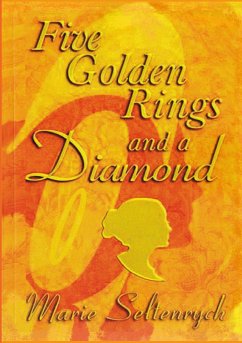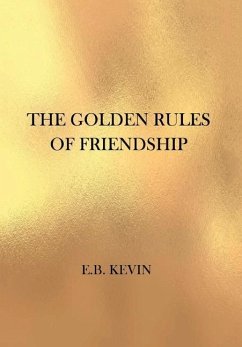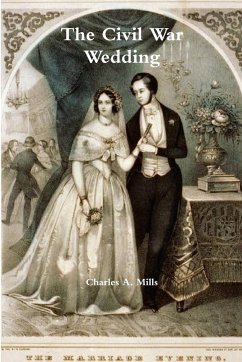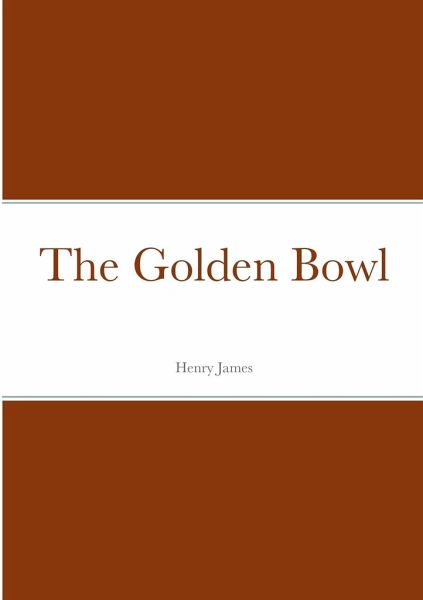
The Golden Bowl
Versandkostenfrei!
Versandfertig in 1-2 Wochen
40,99 €
inkl. MwSt.

PAYBACK Punkte
20 °P sammeln!
The Golden Bowl By Henry James The Golden Bowl is a 1904 novel by Henry James. Set in England, this complex, intense study of marriage and adultery completes what some critics have called the "major phase" of James' career. The Golden Bowl explores the tangle of interrelationships between a father and daughter and their respective spouses.The novel focuses deeply and almost exclusively on the consciousness of the central characters, with sometimes obsessive detail but also with powerful insight. The title is taken from Ecclesiastes 12: "Or ever the silver cord be loosed, or the golden bowl be ...
The Golden Bowl By Henry James The Golden Bowl is a 1904 novel by Henry James. Set in England, this complex, intense study of marriage and adultery completes what some critics have called the "major phase" of James' career. The Golden Bowl explores the tangle of interrelationships between a father and daughter and their respective spouses.The novel focuses deeply and almost exclusively on the consciousness of the central characters, with sometimes obsessive detail but also with powerful insight. The title is taken from Ecclesiastes 12: "Or ever the silver cord be loosed, or the golden bowl be broken, or the pitcher be broken at the fountain, or the wheel broken at the cistern. Then shall the dust return to the earth as it was: and the spirit shall return unto God who gave it. Vanity of vanities, saith the preacher all is vanity."Prince Amerigo, an impoverished but charismatic Italian nobleman, is in London for his marriage to Maggie Verver, only child of the widower Adam Verver, the fabulously wealthy American financier and art collector. While there, he re-encounters Charlotte Stant, another young American and a former mistress from his days in Rome they had met in Mrs. Assingham's drawing room. Charlotte is not wealthy, which is one reason they did not marry. Although Maggie and Charlotte have been dear friends since childhood, Maggie does not know of Charlotte and Amerigo's past relationship. Charlotte and Amerigo go shopping together for a wedding present for Maggie. They find a curiosity shop where the shopkeeper offers them an antique gilded crystal bowl. The Prince declines to purchase it, as he suspects it contains a hidden flaw.After Maggie has married, afraid that her father has become lonely, as they had been close for years, she persuades him to propose to Charlotte, who accepts Adam's proposal. Soon after the wedding, Charlotte and Amerigo are thrown together, because their respective spouses seem more interested in their father-daughter relationship than in their marriages. Amerigo and Charlotte finally consummate an adulterous affair.Maggie begins to suspect the pair. She happens to go to the same shop and buys the golden bowl they had rejected. Regretting the high price he has charged her, the shopkeeper visits Maggie and confesses to overcharging. At her home, he sees photographs of Amerigo and Charlotte. He tells Maggie of the pair's shopping trip on the eve of her marriage and their intimate conversation in his shop.






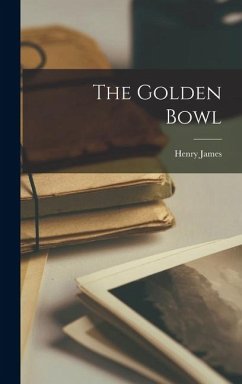
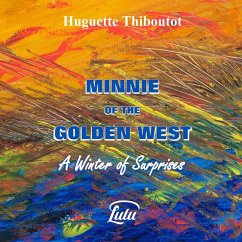
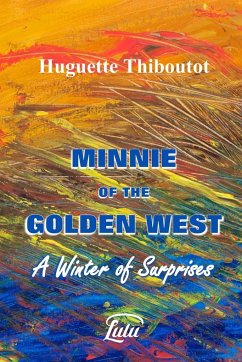
![Golden Wedding: [Mr. and Mrs. I.E. Dreisbach of Circleville, Ohio.] Cover Golden Wedding: [Mr. and Mrs. I.E. Dreisbach of Circleville, Ohio.]](https://bilder.buecher.de/produkte/71/71612/71612910n.jpg)
